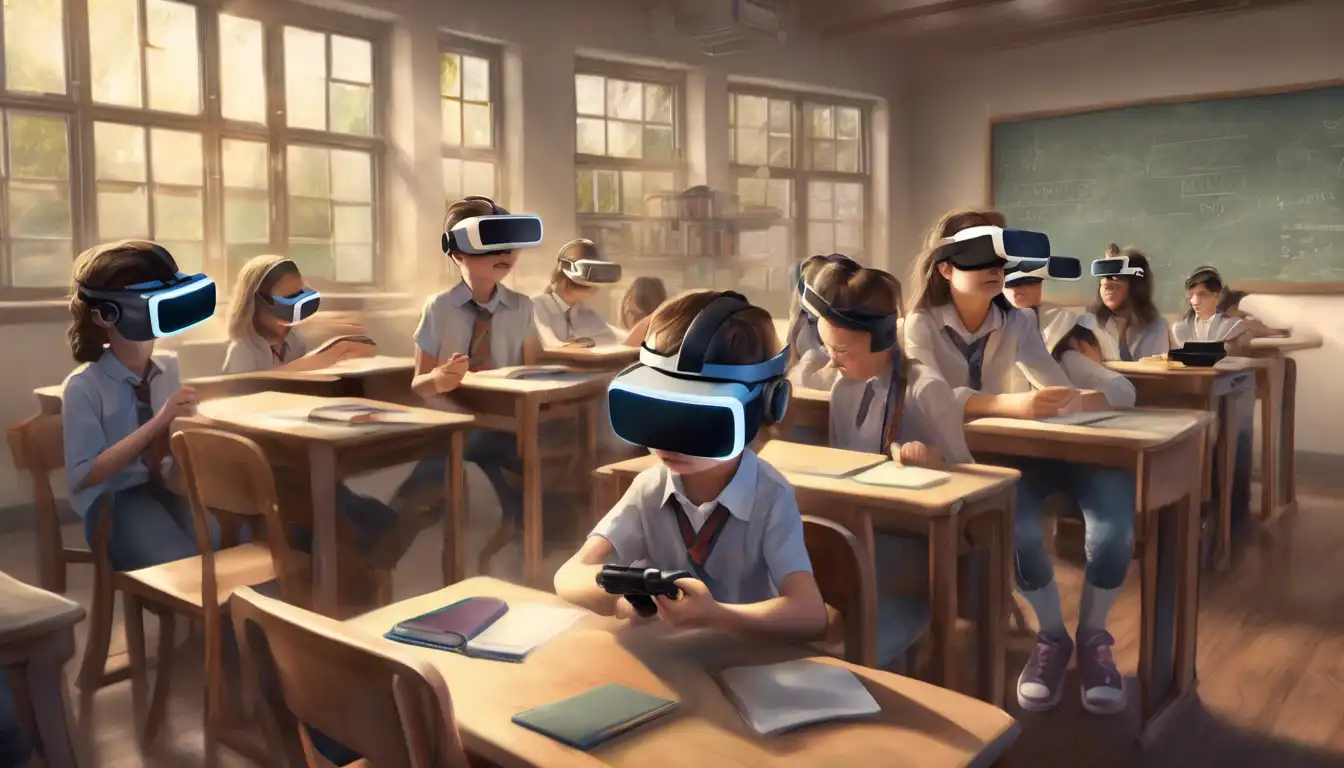The Transformative Impact of Virtual Reality in Learning Environments
Virtual Reality (VR) technology is revolutionizing the educational landscape, offering immersive learning experiences that were once beyond imagination. By simulating real-world environments, VR provides students with unique opportunities to explore complex concepts in a safe and controlled setting. This article delves into the potential of VR in education, highlighting its benefits, challenges, and future prospects.
Benefits of VR in Education
VR technology offers numerous advantages in educational settings, including:
- Enhanced Engagement: VR captivates students' attention by providing interactive and immersive learning experiences.
- Improved Retention: Studies show that learning in a VR environment can significantly improve memory retention.
- Accessible Learning: VR makes education more accessible, allowing students to visit virtual museums, historical sites, and even outer space from their classrooms.
- Safe Practice Environment: VR enables students to practice skills in a risk-free environment, such as medical procedures or mechanical repairs.
Challenges and Considerations
Despite its potential, the integration of VR in education faces several challenges:
- High Costs: The initial setup and maintenance of VR technology can be expensive for educational institutions.
- Technical Limitations: Issues such as motion sickness and the need for high-speed internet can hinder the VR experience.
- Content Development: Creating high-quality, educational VR content requires significant time and resources.
Future Prospects of VR in Education
The future of VR in education is bright, with ongoing advancements in technology making it more accessible and effective. Innovations such as augmented reality (AR) and mixed reality (MR) are expected to further enrich the learning experience. As educators and developers continue to explore the possibilities, VR is set to become an integral part of the educational toolkit.
For more insights into innovative learning technologies, explore our articles on EdTech trends and digital education.
Conclusion
Virtual Reality holds immense potential to transform education by making learning more engaging, accessible, and effective. While challenges remain, the continuous evolution of VR technology promises to overcome these barriers, paving the way for a new era of immersive education. As we look to the future, it's clear that VR will play a pivotal role in shaping the educational experiences of tomorrow.
